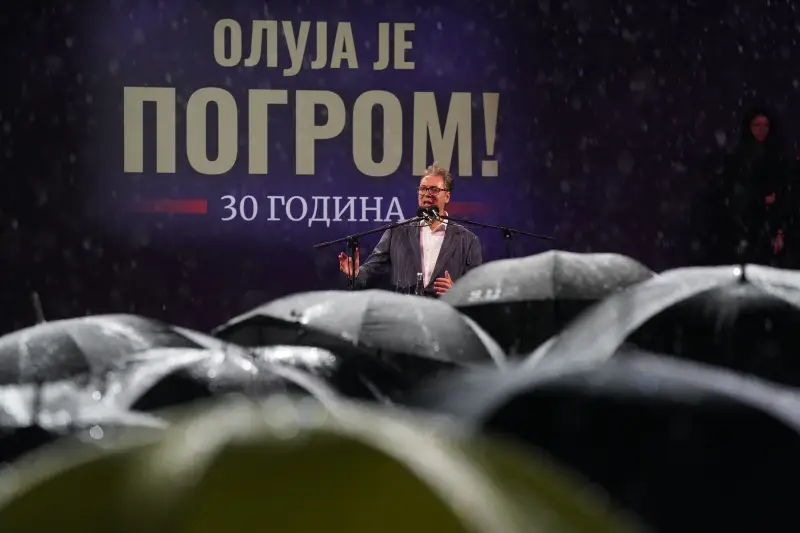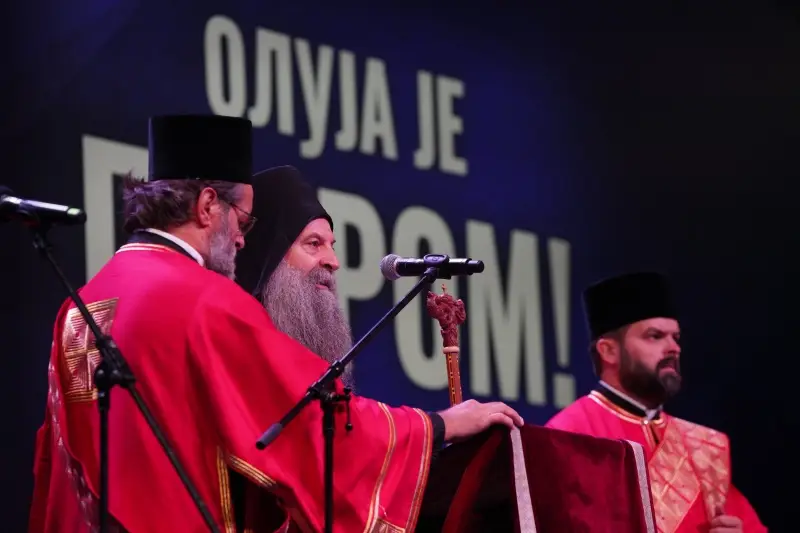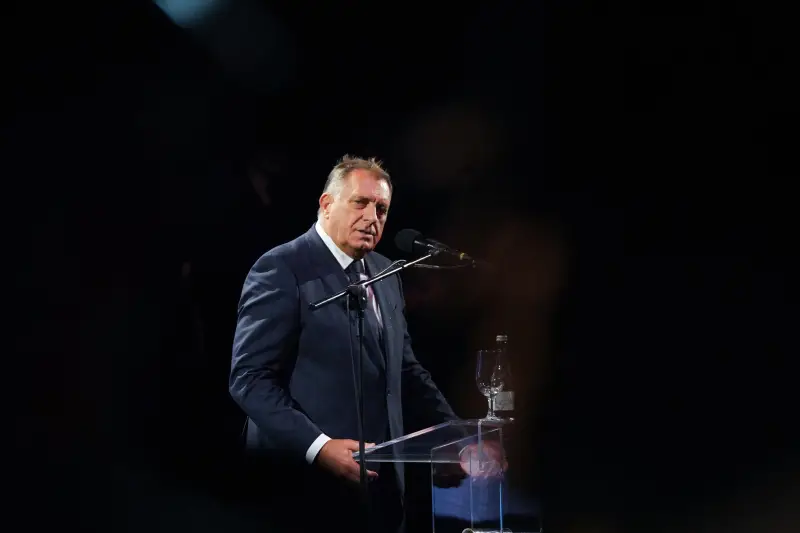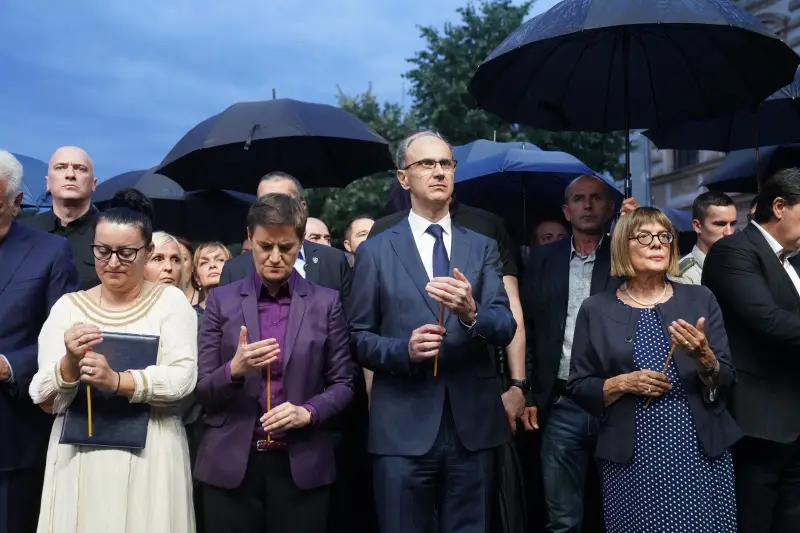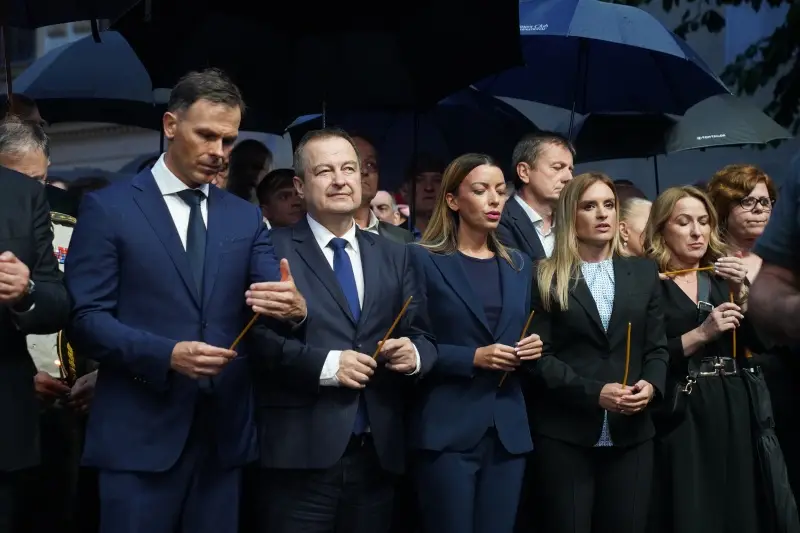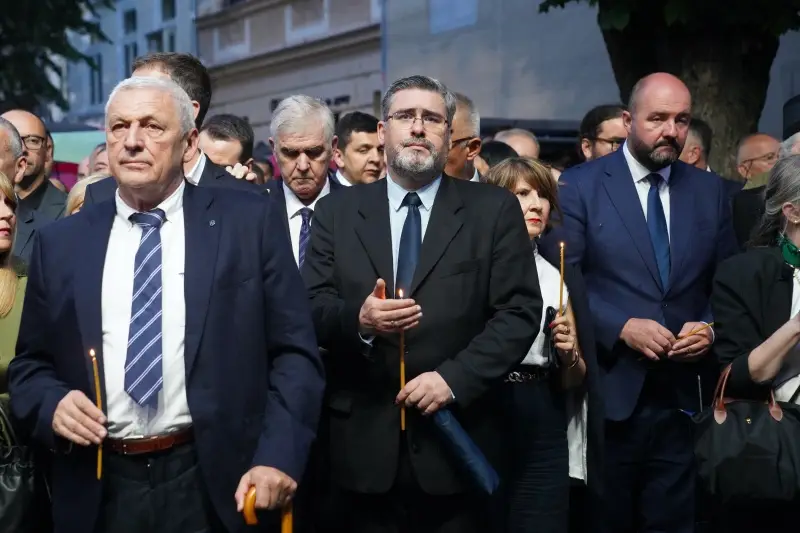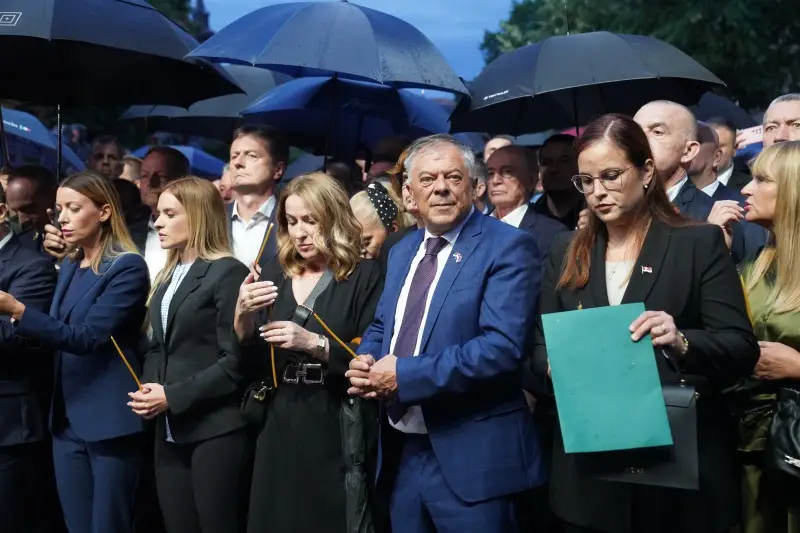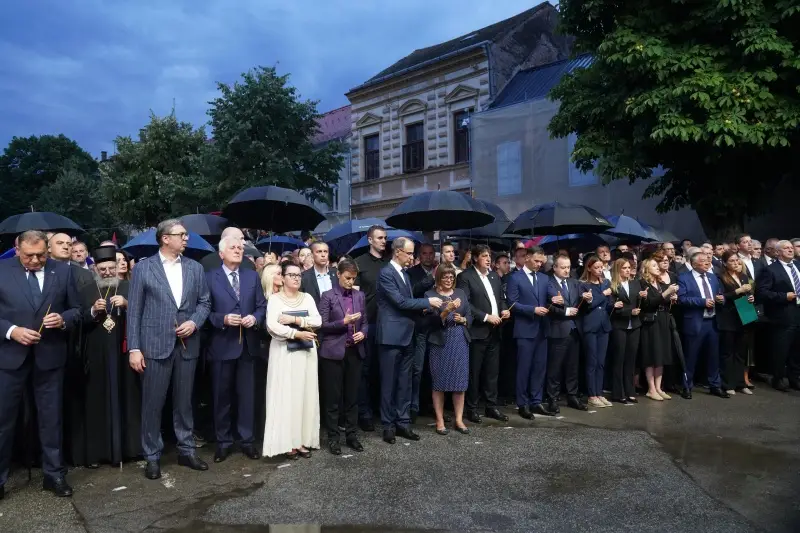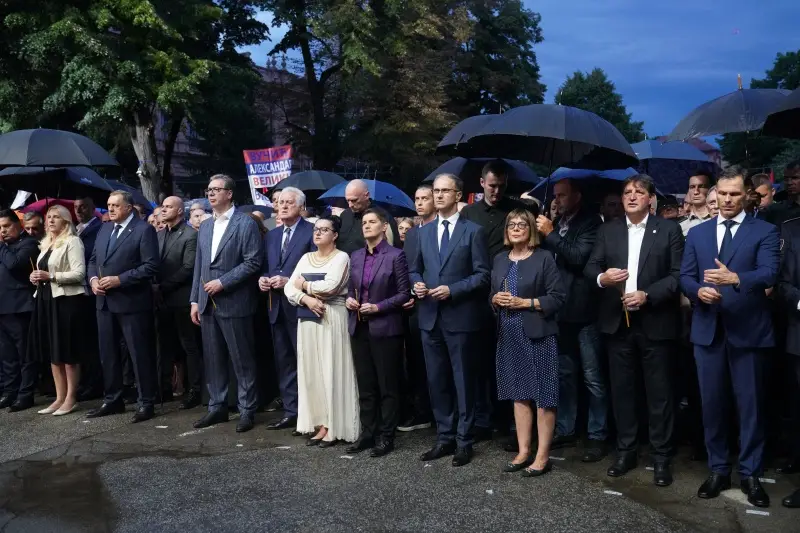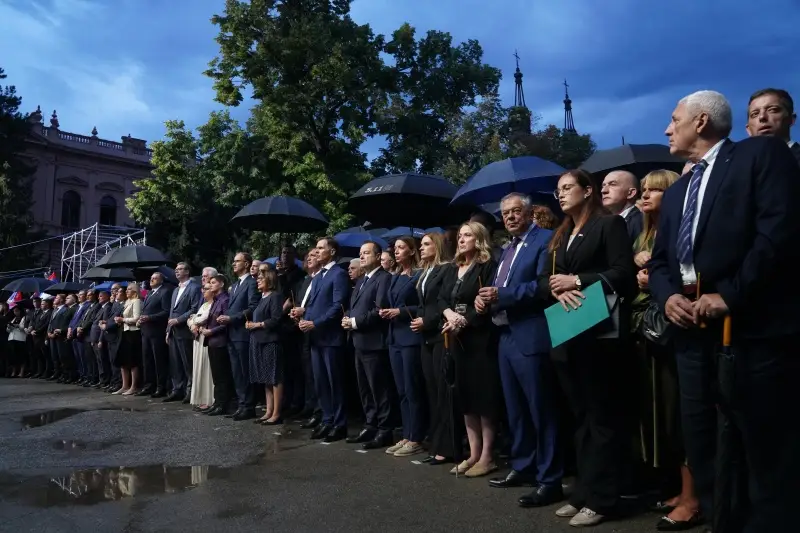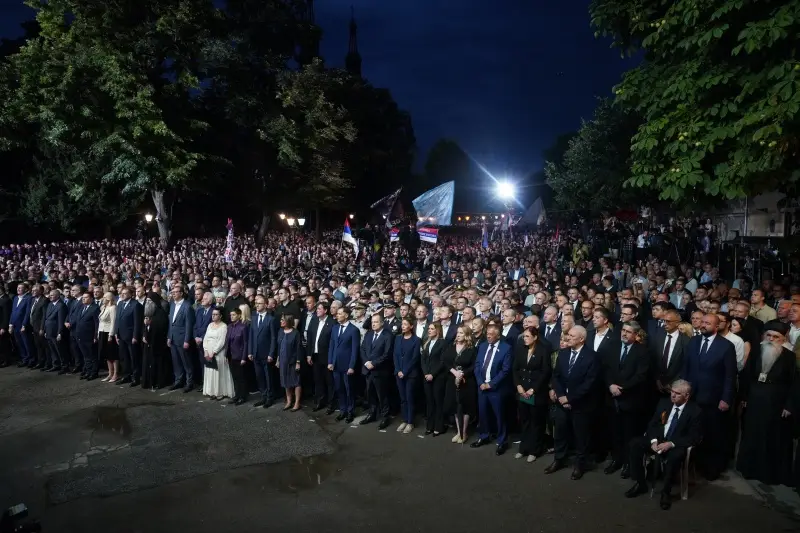The Day of Remembrance of the Killed and Expelled Serbs in the Croatian Armed Operation Storm, which took place 30 years ago, was marked this evening in Sremski Karlovci, in the presence of Prime Minister Professor Đuro Macut, MD, DSc, President of the Republic Aleksandar Vučić and members of the government.
- Serbia
Get to know Serbia
- Citizens
Culture and science
Health services
Pension and disability insurance
- Business
Employment
Economy
- Media
- Government
- Contact
Keep in touch
Keepin touch
Whether you have a question, comment, suggestion or any problem in the purview of the government, send us your message and we will try to respond as soon as possible. If your problem is not in our purview, we will forward your message to the relevant institution.
Day of Remembrance of Killed and Expelled Serbs in Operation Storm marked
The commemoration of the Day of Remembrance was also attended by Serbian Patriarch Porfirije, President of Republika Srpska Milorad Dodik, Speakers of the Assemblies of Serbia and Republika Srpska Ana Brnabić and Nenad Stevandić, descendants and family members of those killed in Operation Storm, as well as numerous citizens.
In his address, Vučić said that a great injustice has been done to Serbs in the past 30 or more years, stating that in addition to seizing territory and expelling people, the fiercest propaganda was conducted, explaining that Serbs were “barbarians and villains out there” who must be overthrown and defeated.
In his address, Vučić expressed his gratitude to the Krajina people who live in Serbia today for everything they have given to our country, after they were expelled from their homes in Croatia and lost everything they had.
We will try to develop friendship, to maintain good relations, but we believe in ourselves, our people and we believe in our future. We will preserve peace and stability, but we will be capable, strong and powerful enough to defend our country much better than we managed to do 26 and 30 or so years ago, Vučić emphasised.
In his sermon, Patriarch Porfirije emphasised that the Serbs in Storm experienced terrible persecution from their centuries-old homes and that we should remember the innocent victims and sufferers from our people, but not hold grudges.
He also said that one should not hate one’s neighbour, because hatred breeds hatred, thus falling into a spiral of evil in which everyone loses.
Dodik said that Republika Srpska is dignified and great, and that it does not want to see a future without close ties with Serbia.
The Croatian attack on the then Republika Srpska Krajina and the expulsion of the entire Serbian population from the area inhabited by Serbs for centuries began at dawn of 4 August 1995, and according to the Documentation and Information Centre Veritas, more than 220,000 Serbs were expelled from the territory of Republika Srpska Krajina in Storm, while more than 1,900 were killed, and numerous crimes were committed. It was the largest exodus of civilians in Europe after World War II.
-
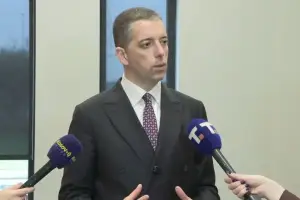 Belgrade/Istanbul, 23 January 2026
Belgrade/Istanbul, 23 January 2026Balkan Peace Platform aimed at strengthening ties in region
-
 Belgrade, 23 January 2026
Belgrade, 23 January 2026EU enlargement policy should be based primarily on merits of candidate countries
-
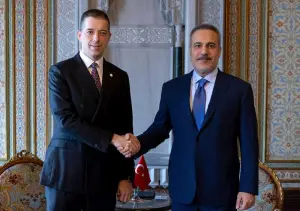 Istanbul/Belgrade, 23 January 2026
Istanbul/Belgrade, 23 January 2026Improving overall cooperation between Serbia, Türkiye
-
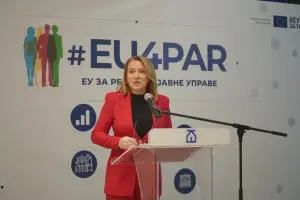 Belgrade, 22 January 2026
Belgrade, 22 January 2026EU is Serbia’s reliable partner in public administration reform process
-
 Belgrade, 22 January 2026
Belgrade, 22 January 2026State of emergency caused by adverse weather lifted in all municipalities, cities
-
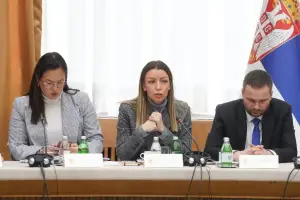 Belgrade, 22 January 2026
Belgrade, 22 January 2026Electricity supply in Serbia stable
-
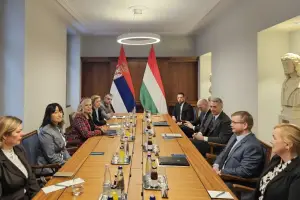 Belgrade/Budapest, 21 January 2026
Belgrade/Budapest, 21 January 2026Belgrade-Budapest high-speed rail of strategic importance for region
-
 Belgrade, 21 January 2026
Belgrade, 21 January 2026Further strengthening of economic relations with UAE
-
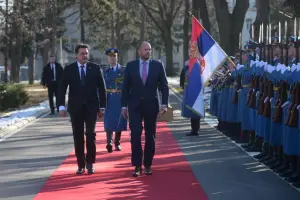 Belgrade, 20 January 2026
Belgrade, 20 January 2026Significance of return of Belgian armed forces to KFOR Mission in Kosovo and Metohija
-
 Belgrade, 20 January 2026
Belgrade, 20 January 2026Continuation of cooperation with EU to strengthen democratic processes

